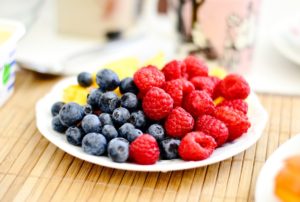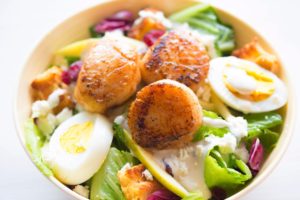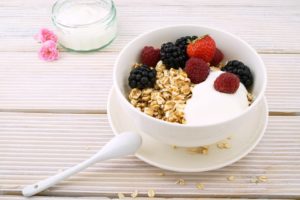Have you considered your breastfeeding diet? How will you adjust what you eat for optimal health? Breastfeeding is a great way to start your child’s life out on the right path. There is nothing healthier for your child than your own milk. Howev er, new mothers may have a lot of questions about breastfeeding including what the best foods are to encourage proper nutrient and give you the right energy to produce an adequate amount of milk. These are some of the most important things that you need to know about your diet when breastfeeding.
er, new mothers may have a lot of questions about breastfeeding including what the best foods are to encourage proper nutrient and give you the right energy to produce an adequate amount of milk. These are some of the most important things that you need to know about your diet when breastfeeding.
How Many Calories Do You Need in Your Breastfeeding Diet?
For the most part, you should not be counting calories while you are breastfeeding as this can cause some unnecessary stress. There are actually a lot of factors to consider when talking about how many calories you need. In most circumstances, a nursing mother requires 500 more  calories than other moms, meaning they need anywhere between 2,000 and 2,500 calories. The other factors that need to be considered include activity level, weight, frequency of breastfeeding, and your metabolism.
calories than other moms, meaning they need anywhere between 2,000 and 2,500 calories. The other factors that need to be considered include activity level, weight, frequency of breastfeeding, and your metabolism.
How Much Protein, Fat, Vitamins, etc.?
First of all, nursing mothers should continue to take their prenatal vitamins as these will supplement the most essential vitamins that you need to be consuming while nursing. You should be eating 3 servings of protein every day as well as limiting your intake of high-fat foods. It is also important to keep eating a healthy diet, balanced with plenty of fruits and vegetables and rich in vitamins (especially C), Omega-3, calcium, and iron.
3 servings of protein every day as well as limiting your intake of high-fat foods. It is also important to keep eating a healthy diet, balanced with plenty of fruits and vegetables and rich in vitamins (especially C), Omega-3, calcium, and iron.
Breastfeeding Diet: Recommended Foods
You will need to have a very healthy and balanced diet when you are nursing. It is essential that you are consuming these foods:
- Complex Carbs (whole grains and cereals)
- Fresh Fruits
- Fresh Vegetables
- Healthy Fats (avocados, salmon, olive oils, etc.)
- Leafy Greens
Breastfeeding Diet: Foods to Avoid
There are some things that you should absolutely be avoiding when you are breastfeeding, in addition to avoiding alcohol and caffeine, including:
- Processed Food
- High-Mercury Fish
- Dairy and Meat High in Fat
- Certain sugar substitutes
- Certain herbs
How Much Water Do You Need
It is essential that you
get enough water in your diet otherwise you could become dehydrated. You should at least drink 8 cups of water every day, drinking anytime that you are nursing or pumping. This is also very essential because it can help your body to recover from the birth.
Avoiding Caffeine
Caffeine may be a lifeline for you, especially during those early sleepless months that you are going to be struggling with. You will need to limit yourself to only a cup or two of your favorite caffeinated beverage. Any more than that, you will be risking a variety of issues in your baby including jitteriness, colic, irritability, and can cause acid reflux.
Avoiding Alcohol
It is possible for some of the alcohol that you consume to end up in your breast milk, which is why you should be avoiding drinking while nursing. Drinking too much while nursing can cause a child to be sluggish, sleepy, and unable to suckle properly. If you are going to drink do a pump and dump or imbibe after you have nurse while giving yourself a 2 hour period before nursing again.
